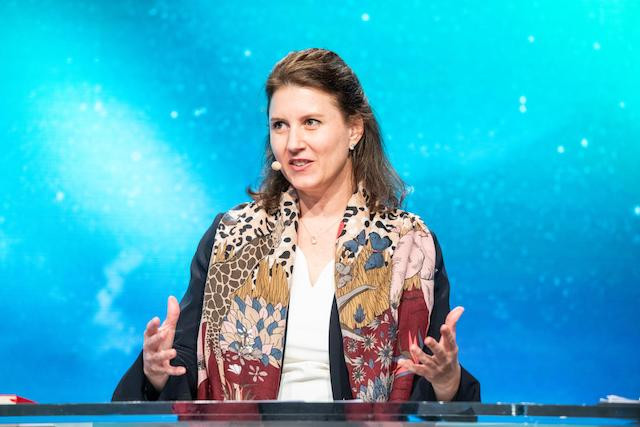“Stewardship means that the client entrusts us with their capital, and we hence have a fiduciary duty and we need to make sure that the investments of our clients are invested into companies and into assets that are long term, that bring good returns, [and] also consider ESG factors, to make sure that financial returns are met and not put at risk,” says Natalie Westerbarkey, head of EU public policy at Fidelity International, who is based in Kirchberg. That means looking beyond financials to check “other criteria that could potentially impact the company where that money is placed.”
Fidelity International has around 180 analysts who have roughly 16,000 meetings each year with the management and board of companies they invest in, to “verify or challenge the company” on their activities, according to Westerbarkey. “They try to influence the behaviour of the company, and that, in essence, is the core of stewardship.”
Risk reduction
Applying a stewardship code, she reckons, “enhances our clients’ long-term returns. They trust us as allocators of their capital and we need to anticipate the headwinds that could compromise these good returns. So, everything that we invest [in] has an impact not just on the company, so the investment, but on society as a whole.”
The company says that it and other active investment managers have, for example, helped convince a large European oil and gas company to invest more in renewable energy, influenced a major Chinese textile firm to disclose the labour rights performance of suppliers, and pressured big Singapore banks to stop financing coal power plant construction.
She says they are prepared to apply pressure on investee management over the long haul. “There’s always the possibility to divest. But divestment is a means of last resort, because we strongly believe in engagement. So, we would first continue to meet the company and influence [its] behaviour and have an impact through that, rather than divest. Because with a divestment, there is no impact, really. That is the issue. [That would only work] at a collective level. Therefore, we still prioritise engagement over divestment. That is one of our core beliefs. We also think from the stewardship perspective [that] serves best the interests of our clients.”
That said, the firm’s analysts and portfolio managers can always take an “appropriate response” when it comes time to cast proxy votes, including on executive pay issues.
Ratings system
Using company reports, information gathered during those analyst meetings and data from external providers, the firm has introduced an internal ESG ratings system, somewhat similar to those issued by credit ratings agencies. Its ESG scores are based on several indicators within the “E”, “S” and “G” categories. “We plan to cover our entire investment universe of 3,000 companies by the end of this year,” she states. This summer, Fidelity used these propriety ratings to introduce a range of five sustainable funds, which invest in firms that score well.
The stewardship code and ESG ratings add to the firm’s credibility, Westerbarkey reckons. “I think this is critical for the relationship with clients and to build trust, and to keep and to maintain trust. Ultimately in our industry, it is mostly about trust.”
“Luxembourg is also, I believe, a standard-setter,” Westerbarkey says. “I’m thinking of the recent [financial regulator] CSSF circular that limited the number of board appointments any individual can have at one time, which makes perfect sense. This is something that should help guide other jurisdictions too, so Luxembourg can play a role-model function.”
